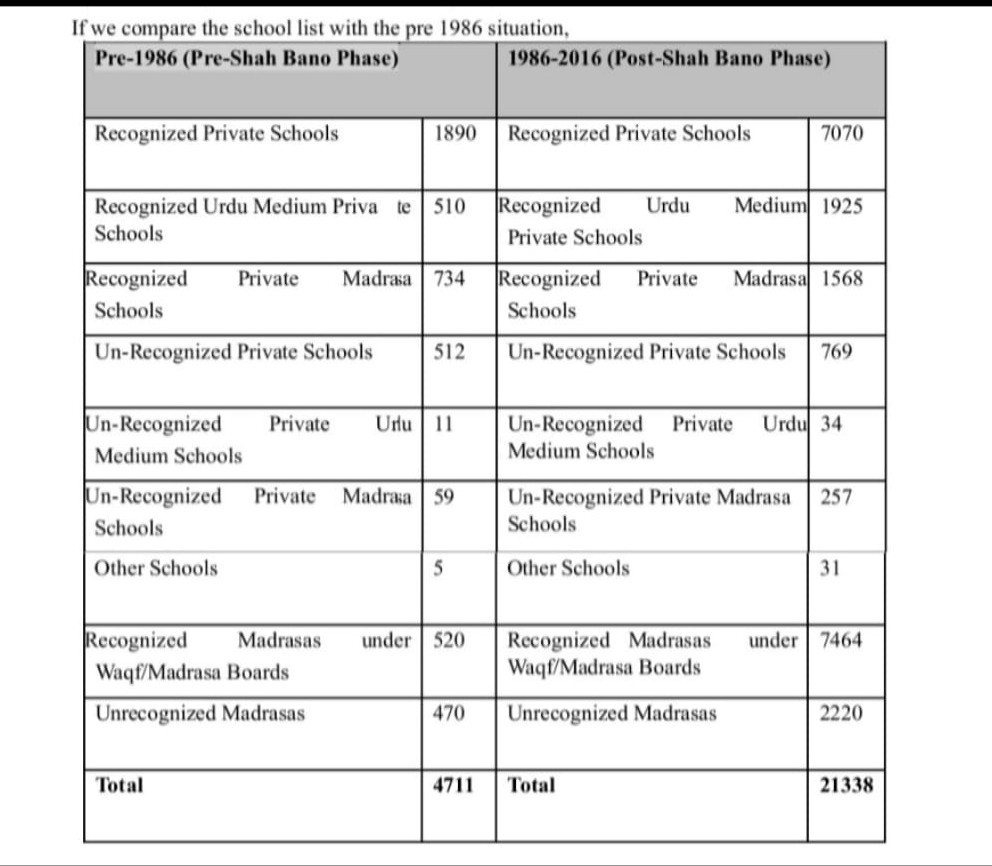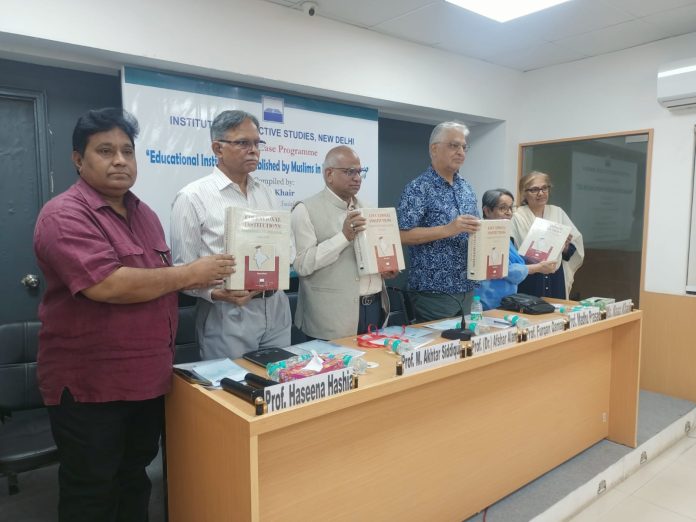New Delhi: A new book titled “Educational Institutions Established by Muslims in India (1986-2016),” authored by Naaz Khair and commissioned by Institute of Objective Studies, was unveiled by Professor Afshar Alam, Vice Chancellor of Jamia Hamdard, at the IOS auditorium here Saturday.
While releasing the book, Professor Alam highlighted its comprehensive examination of educational institutions founded by Muslims in India over a thirty-year period.
He noted, “The book offers insightful analysis of how these institutions have contributed to the educational and social progress of the Muslim minority, focusing on both the challenges faced and the achievements made. It also underscores the significant role of institutions like Aligarh Muslim University and Jamia Millia Islamia in providing access to higher education for Muslim students, who are often marginalized in India’s broader educational landscape.”
Naaz Khair, the author and an independent consultant in education and social sector, shared key findings from the book. She revealed that, between 1986 and 2016, Muslims established 21,338 recognized and unrecognized private schools, including madrasas, as well as seven UGC-approved private universities, 111 UGC-approved private colleges, 3,660 minority-run private schools, colleges, and universities, and 226 minority-run technical institutions.
 Professor Furqan Qamar from JMI’s Department of Management Studies praised the publication, noting, “This is an excellent starting point, but it’s crucial to continue updating this data. The creation and regular updating of a comprehensive database of Muslim-established institutions will benefit researchers both nationally and internationally.”
Professor Furqan Qamar from JMI’s Department of Management Studies praised the publication, noting, “This is an excellent starting point, but it’s crucial to continue updating this data. The creation and regular updating of a comprehensive database of Muslim-established institutions will benefit researchers both nationally and internationally.”
Professor M. Akhtar Siddiqui, a retired faculty member from JMI’s Faculty of Education, remarked, “This study firmly establishes that Muslims have made significant contributions to nation-building, despite criticisms to the contrary. It shows that the community values education and is committed to the nation’s progress.”
Professor Madhu Prasad, a retired professor from Zakir Hussain College, reflected on her own experience, stating, “I come from an institution, Zakir Hussain College (formerly Madrasa Ghaziuddin), which represents the rich history of Muslim education in India. For over 300 years, it has been a leading institution for higher education in North India, and its legacy is a testament to the Muslim community’s enduring contribution to the country’s educational landscape.”
RTI activist and researcher Saleem Baig discussed the difficulties encountered in gathering data for the book, noting the reluctance of stakeholders and government bodies to share information about Muslim-established institutions.




